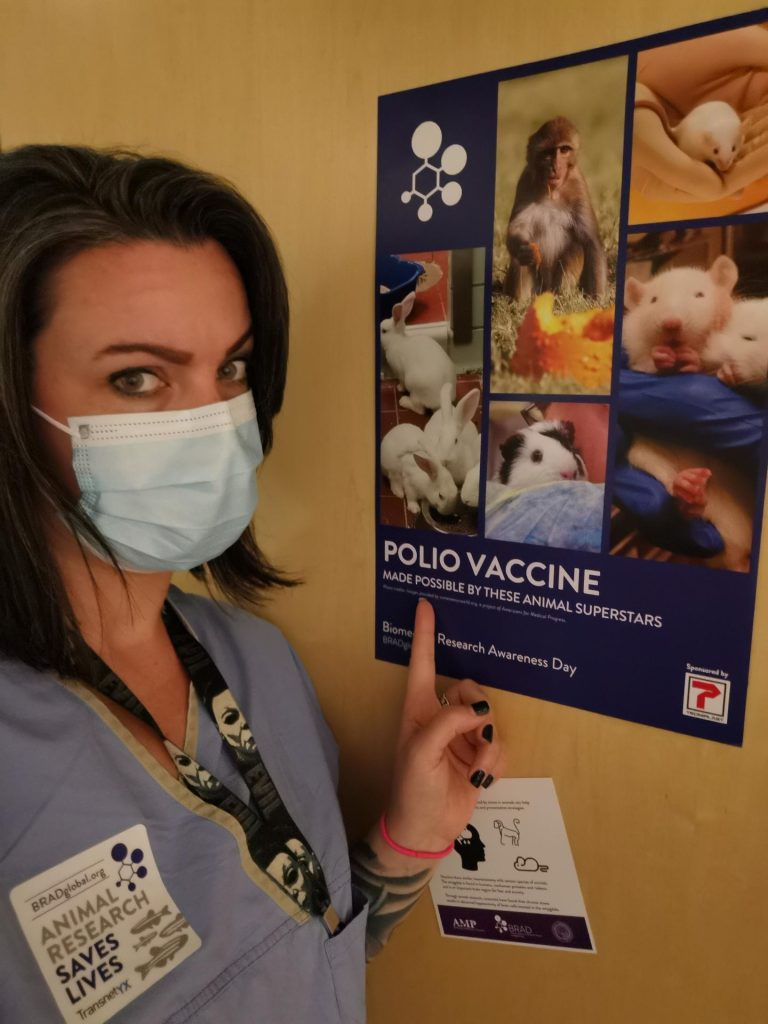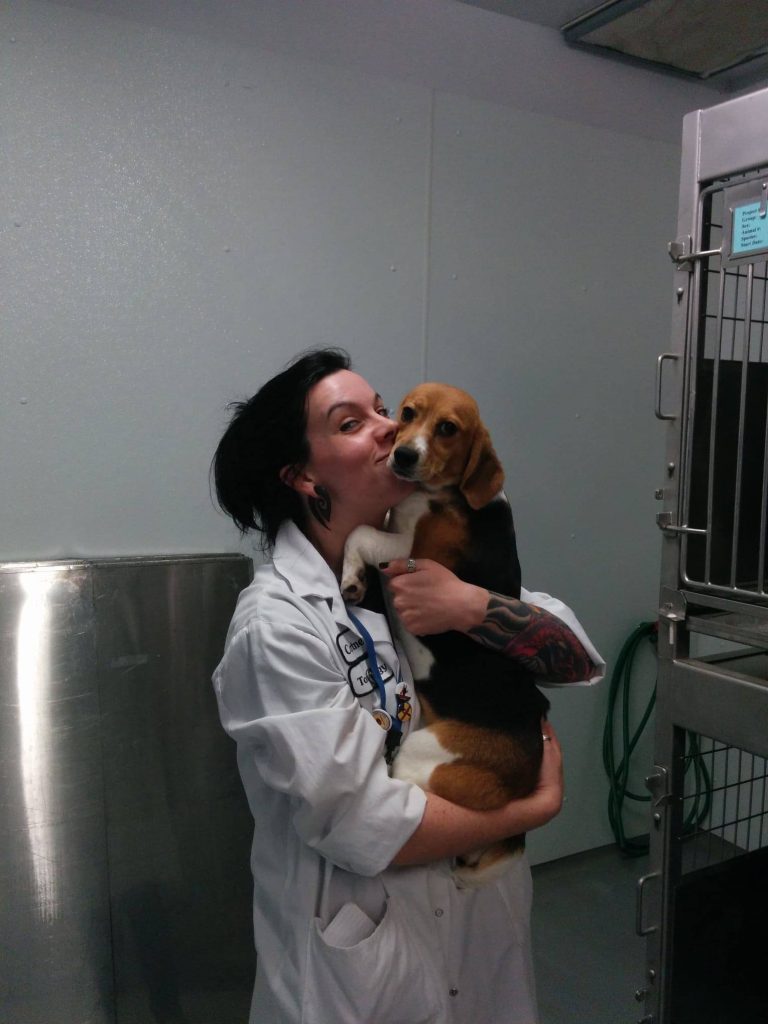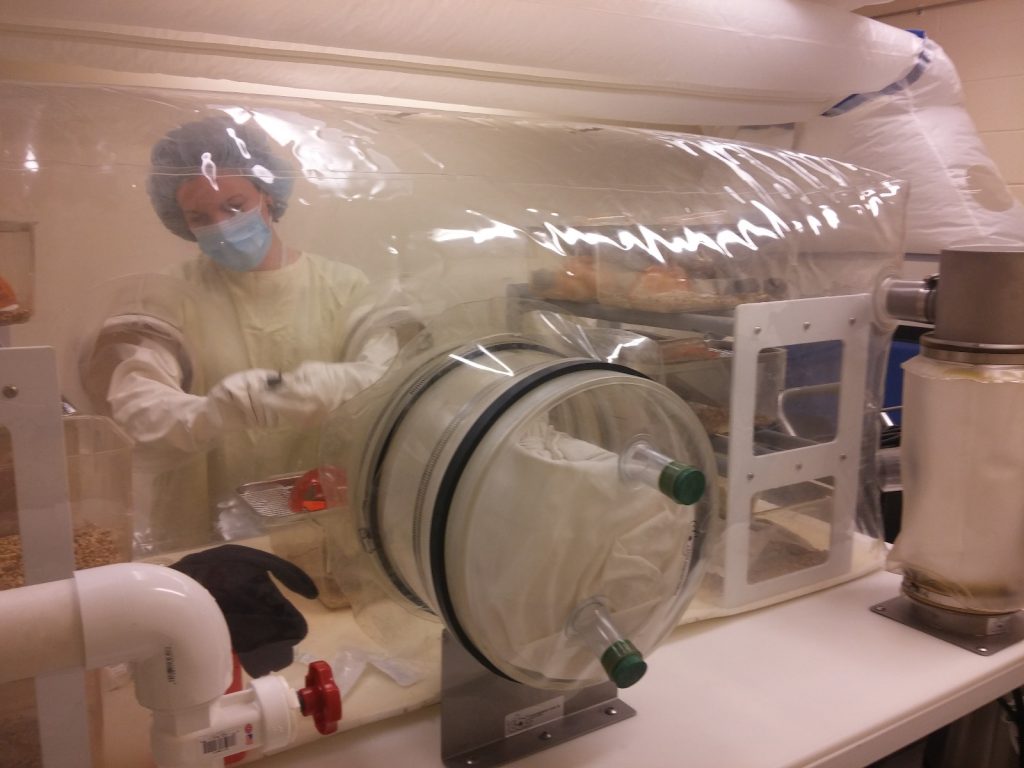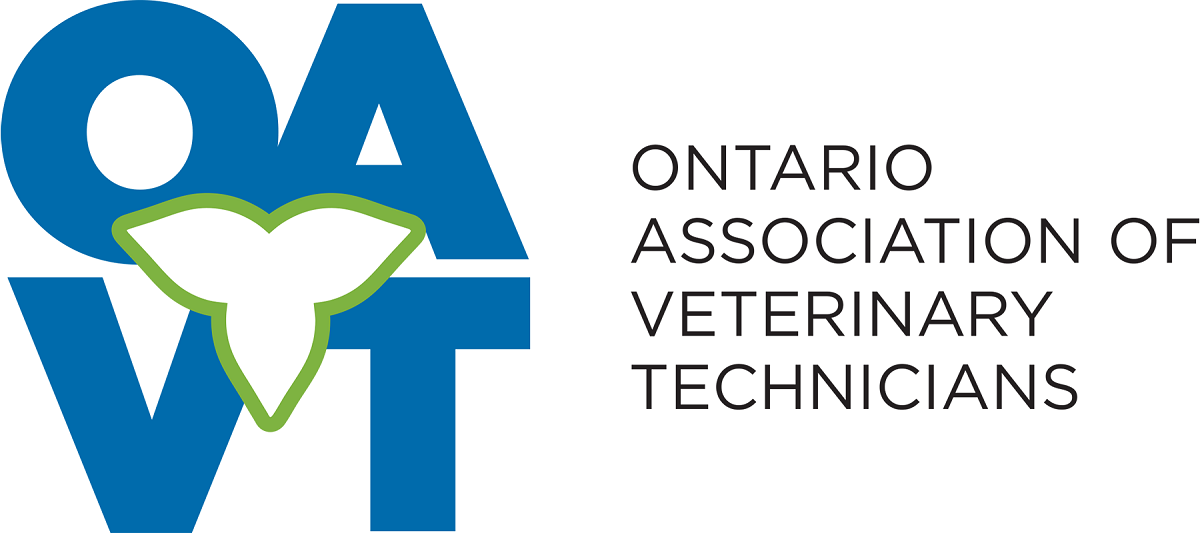


Courtney Dwyer, RVT
Where did you go to school and what made you decide to take a Veterinary Technology program?
I attended the three-year program at St. Lawrence College (SLC), in Kingston. Like many people working in the field, I had decided at a young age I wanted to work with animals. I had been working as a Veterinary Assistant in a local vet clinic for about 9 years before finally deciding to become an RVT. I tried other career paths prior to becoming [an RVT] but was never able to fully leave the field.
What is your current job(s)?
I currently have a few jobs! My career has been primarily focused on laboratory animal science. As the current Training Coordinator for The Centre for Phenogenomics, my days are spent educating and training new and existing researchers on the ethical use of animals in biomedical research. I also work part-time at a local animal hospital where I get my puppy and kitten fix! Thirdly, I am a part-time professor of Laboratory Animal Handling for the SLC Veterinary Assistant program.
What led you to that role?
Before attending the SLC Veterinary Technology program, I hadn’t much considered entering the world of research, but one professor changed my mind. Dr. Pauline Smith really taught me how vital we, as veterinary professionals, are to lab animal science and animal welfare. I entered research immediately upon graduation. I started off working directly with researchers, performing a variety of technical procedures/experiments and animal care duties. I soon realized that I wanted to pass along the skills I had obtained in school and in the field. That is what led me to teaching at the college level and finally to my role as Training Coordinator at The Centre for Phenogenomics.
What other jobs have you had in the RVT field? / What made you want to pursue this position?
I like a little variety in my work life! I have worked in a few areas as an RVT, including emergency and regular practices, medical research, and teaching. As my full-time work is primarily with rodent species, I wanted to ensure I kept my other RVT skills current. Working in emergency and regular practice has helped me to accomplish this.
Tell us about your career path and how one role helped open doors for another role. Was it scary making a change? What advice can you give other RVTs who may “want a change” and they just don’t know how to turn it into a reality?
I’ve always been a bit of a workaholic, gaining work experience wherever I could, and this has opened many doors for me. Of course, in my current role as Training Coordinator my experiences teaching and working directly with laboratory animals were key. Transitioning to teaching and training was incredibly scary! That little voice in the back of your mind telling you that you’re not qualified or prepared. My best advice is to go for it! Take the chance, even if you’re scared or feel you don’t have enough experience. You never know what amazing opportunity is out there waiting for you. Speak with someone in your field of interest, other RVTs can be an amazing resource.
Do you have any advice for RVTs who might want to pursue a similar role?
Don’t be afraid to take an entry-level role if you are interested in getting into research. There is a constant demand for animal care, technical and research staff. Getting a year or two of work experience under your belt can open up many, very interesting opportunities. The world of biomedical research is vast and there is always an opportunity to advance. Also (especially for new grads), get your RLAT certification through the Canadian Association for Laboratory Animal Science (CALAS).
What are your goals as an RVT? Not just your immediate goals, but long-term goals.
My goal, as an RVT and RLAT, is to develop the best training program possible! I want to provide researchers and technical staff with the skills to advance biomedical research while also ensuring the ethical use of animals. Veterinary medicine and laboratory science are constantly advancing. I want to ensure that these changes are implemented, and the use of research animals is as up-to-date and ethical as possible.
RVTs are passionate people, and every RVT has an area they are most passionate about (nutrition, research, spay/neuter, dog bite prevention, education, etc.). What is YOUR passion?
I’m most passionate about animal welfare and education. I believe these two things go together, especially when working with animals. The more we know and understand about our animals, the more we can ensure the ethical use of these animals!
Is there one thing you would like to see changed in the RVT field in 2022?
The RVT field has come a long way since beginning my career in Veterinary Medicine (many years ago)! RVT’s training and skills are invaluable, and I would really love to see more techs seeking careers in research. Whether working as part of the animal care team, directly for investigators, or in a regulatory position, I feel RVTs can make a true difference in animal use and welfare.
